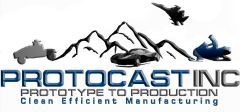Though the metal casting and machine shop processes might initially come across as rather straightforward and cut and dry, there is a surprising amount of misinformation surrounding the metal casting industry. At Prototype Casting, we believe in using the best, safest and most efficient practices in the machine shop and metal casting industry to assure that our products are casted with the utmost accuracy.
In order to be a more informed customer, Prototype Casting wants you to be aware of the misconceptions and myths related to the industry that our metal casting company specializes in. These days, CNC machining and other manufacturing processes like casting are so ingrained in the manufacturing sector that it’s often taken for granted.
Whether you’re a large-scale commercial vendor or an individual curious about the practices of metal and mold casting, you might be surprised to learn about some of the nuances of machining that many people tend to overlook or accept as a fact. In today’s post, Prototype Casting is going to take a look at some of these myths.

